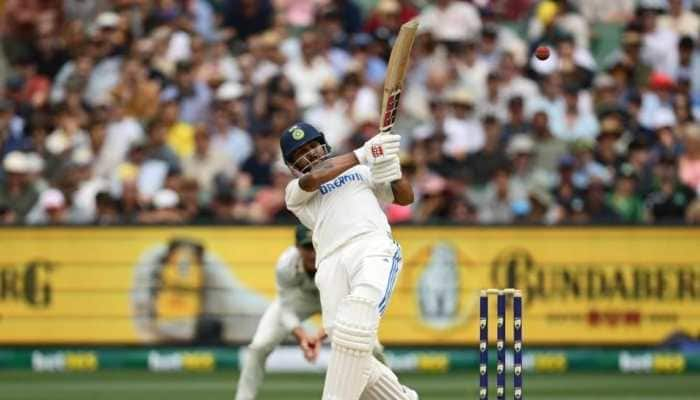Pre-poll defections: India's politics is looking more and more like its IT sector
Naive idealism of the Independence movement and the Emergency era are now a thing of the past.
Trending Photos
)
I had begun the new year by discussing how smaller parties were going to be more important in this election season in India. Following the sad and premature demise of Goa Chief Minister Manohar Parrikar and the tumultuous politics in the state in the aftermath, I am tempted to add one more thing: the Goa model of fractious, fluid coalition governments is set to spread over a larger swathe of India as democracy takes roots and interest group politics and local issues begin to override deeper issues of ideology, national-level posturing or big party organisations.
You only have to go state by state to understand how politics has entered the phase that the Indian economy did in the aftermath of reforms that kicked off in 1991. With the rise of Prime Minister Narendra Modi's Bharatiya Janata Party (BJP) and a slew of regional parties across the country, it is not just that coalitions have become mainstream.
Within each party, workers and lobbies have become more demanding - much like restless software employees who smelt opportunities in a world where employers including Infosys, Wipro, IBM, Accenture and a host of others competed for talent.
Goa is a small state and it took the charisma of Parrikar to keep his flock together. His successor Pramod Sawant was sworn in after the Congress tried valiantly to form a rival government on the strength of being the single largest party in the state assembly. Sawant now has a tough task ahead in emulating Parrikar in a state where Hindutva politics has limited utility because of the rooted presence of regional outfits and 25% Christian voters.
A key point, as one analyst observed in a TV discussion, is that defecting leaders get re-elected from their constituencies, suggesting that their confidence and their abilities can overpower the might, the ideology or the symbol of a big party. Or, for that matter, the stigma that one used to attach to defections. I think this phenomenon is spreading across India. I hope to discuss specifics some other time, but there is a general pattern that needs to be noted.
Today's slogging party worker is tomorrow's neta. Imagine. Mamata Banerjee was just a humble Congress worker on the streets of what was then Calcutta. In today's Kolkata, she rules over the state with her own Trinamool Congress that has managed to take on both the CPM and her mothership, the Indian National Congress. Modi himself has risen in the BJP from his humble worker origins in Gujarat and has successfully sidelined stalwarts like Lal Krishna Advani.
The naive idealism of the Independence movement and the Emergency era have given way to hard-as-nuts ambitions and strategies. Mastery of local issues, goodwill, oratory, lobbying and media savvy are now explicitly recognised as key political skills.
If the "high command" of any party is not willing to recognise a worker, breakaway formations and audacious defections offer them a way out. All major Indian political parties with the exception of the communist groups no longer care enough about ideology or the mood of grassroots workers enough to discourage defectors from coming in.
There may be an unwritten recognition: a so-called loyal worker is just a not-so-competent chamcha. In such a context, parties prefer a smart defector to a dubious loyalist. Or a useful defector, as we found out last week when Tom Vadakkan, a long-time Congress spokesman considered close to Sonia Gandhi, simply jumped ship to the BJP. The Kerala leader's ostensible reason (Congress disregard for the Army) and timing for the jump were so flimsy, that it looked more comic than grandiose. Vadakkan after decades sitting literally 100 metres from 10 Janpath at the Congress head office suddenly realised the party practises dynastic politics. Excuse me?
Vadakkan is not a major leader but the BJP holding a news conference to announce his entry was certainly a significant indicator of where Indian politics is going.
Caste, community and tribe still remain important political currencies in India. To top this, we may add an increasing localisation of politics. Local netas who care about the neighbourhood hospital, road or school and are/or more available to meet voters to address their various concerns build up goodwill that escapes the attention of the national media. But they do not escape the hawk eye of the high commands of parties. We have a virtual stock exchange for "winnable" politicians based on ground reports.
The scene is not much different from the technology sector, where Amazon, Microsoft and Google may love to poach each other's employees based on their CVs and industry intelligence. Talent, work, skills and energy matter more than loyalty. If the people in question are mission critical (Read: key to winning seats or forming governments), the netas matter more.
What is happening this month across political parties are just like annual appraisals and job interviews in top companies every March, prior to the start of a new financial year. Some employees get thumbs-down signals and they look for other opportunities. Smart ones feel bad when smarter ones get the chance or a new boss moves in with his/her own ideas and confidants.
In a sense, such defections and group shifts have been part of Indian history and culture. Only, generals and soldiers who used to capture territories for kings have given way to netas and chamchas who capture votes for parties.
In such a context, the stylish reference to "winnability" in political parties is an indirect admission of the harsh reality of grassroots politics: Parties don't really win on the basis of their ideals; they increasingly put their brand names on those they think are likely to win, while keeping their trademarks alive with tall talk and big spending.
(Disclaimer: The opinions expressed above are the personal views of the author and do not reflect the views of ZMCL.)
Stay informed on all the latest news, real-time breaking news updates, and follow all the important headlines in india news and world News on Zee News.
Live Tv







)
)
)
)
)
)
)
)
)
)
